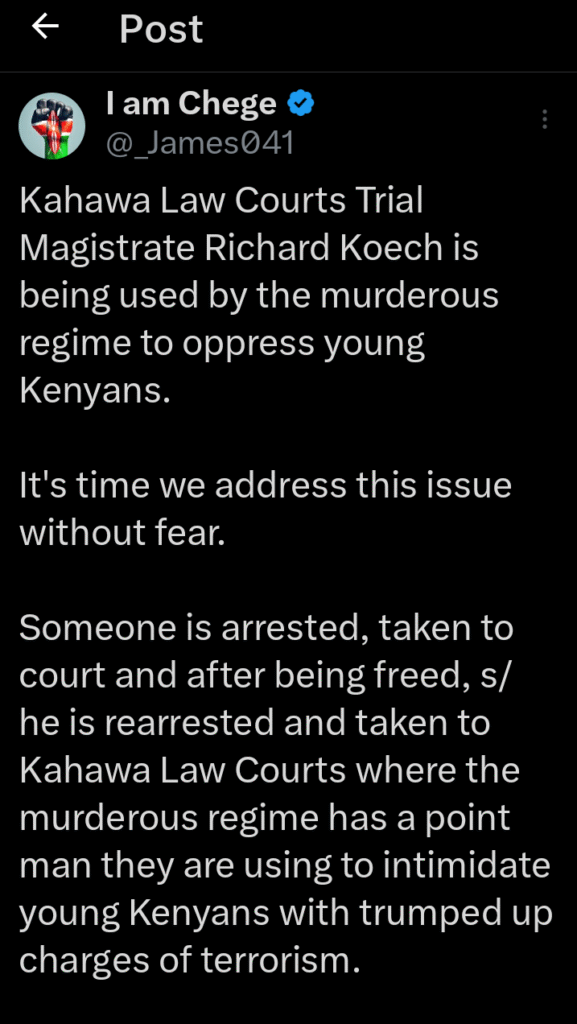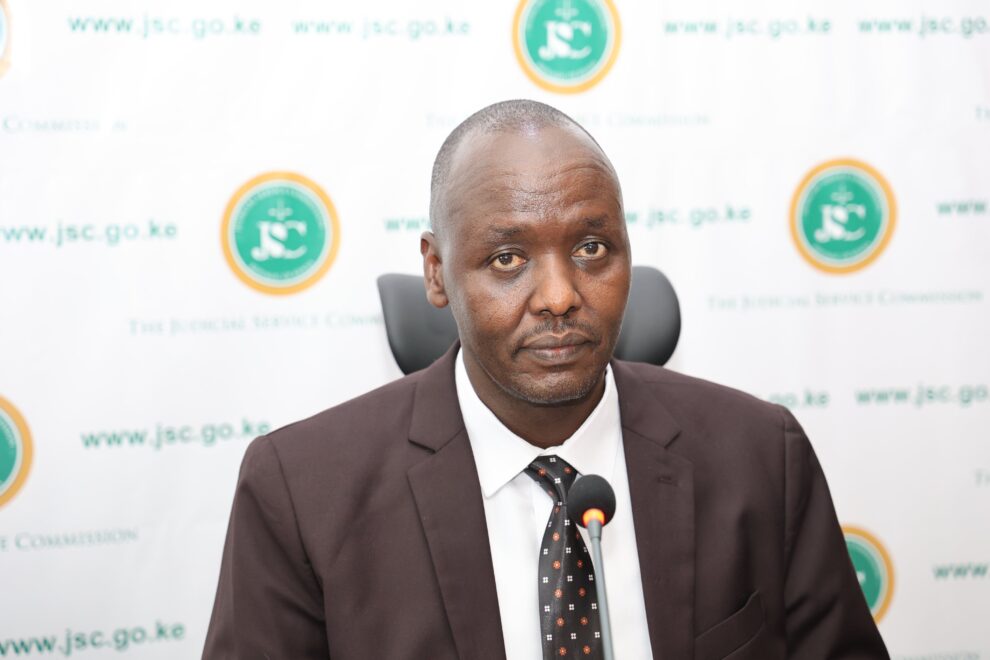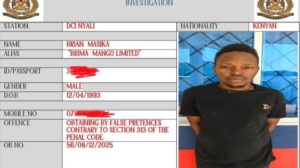Kahawa Law Courts, under Magistrate Richard Koech, has become a worrying symbol of how the judiciary can be used to punish young Kenyans for expressing themselves. Several cases have come up in recent weeks where youth under the age of 25, many of them students or recent graduates, are being charged with terrorism for incidents linked to protests.
This includes the Mawego Police Station case, where eight young suspects were charged after the station was set on fire during demonstrations following the death of Albert Ojwang, a teacher and blogger who died in police custody.
They were later transferred to the Anti-Terrorism Police Unit and appeared before Magistrate Koech, where they were charged under the Prevention of Terrorism Act and denied bail pending a ruling set for July 22.
Critics have raised alarm over how these charges are being used. Former Chief Justice David Maraga, who attended court sessions on July 16, openly criticized the use of terrorism laws against young protesters.
He said these charges are not about justice but about controlling the youth. He pointed out that most of these suspects are just 18 or 19 years old and argued that they are being kept in custody for long periods simply to intimidate others from joining protests.
According to him, the state is using the courts to silence dissent by traumatizing families and destroying the lives of young people who have not been proven guilty of anything.
Online, activists have also been vocal. One of them, using the handle I Am Chege, questioned why suspects released by lower courts were rearrested, taken to Nairobi, and slapped with terrorism charges.
He highlighted that in some cases, people were being charged for breaking windows during demonstrations and yet being held without bond under anti-terror laws.
Chege, like many others on social media, believes this is a deliberate move to scare young Kenyans from ever speaking out again. He called out Judge Koech directly for enabling what he described as an unjust system that serves the interests of the powerful rather than the law.
This pattern has not just been seen in one or two cases. Another group of 37 suspects, accused of damaging government offices in Kikuyu, Kiambu County, were also charged with terrorism and malicious damage to property.

This included public offices like the law courts, registrar’s office, and even the chief’s office. Just like the Mawego suspects, they all pleaded not guilty, yet most were denied bail and remain in custody.
Such decisions by Magistrate Richard Koech are raising serious concerns about the role of the judiciary during protests. While property damage should not be ignored, the use of terrorism laws in such cases appears excessive and politically driven.
The law is being stretched beyond reason to target individuals who oppose the government. Former Chief Justice Maraga warned that this trend could damage the integrity of the legal system and called on the courts to act with fairness rather than fear.
As of now, all eyes are on the July 22 bond ruling in the Mawego case. But the bigger issue is the continued use of terrorism charges in a way that appears more about punishing protest than upholding the law.
Judge Richard Koech’s courtroom is increasingly seen not as a place of justice, but as a tool for political control. If this continues, it may erode public trust in the judiciary and create a generation of Kenyans who view the law not as protection, but as a weapon turned against them.





















Add Comment